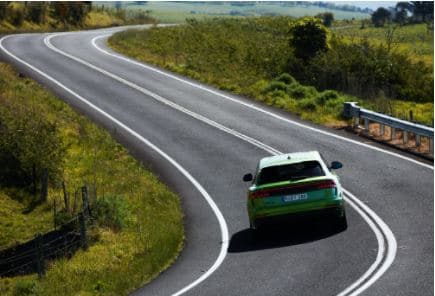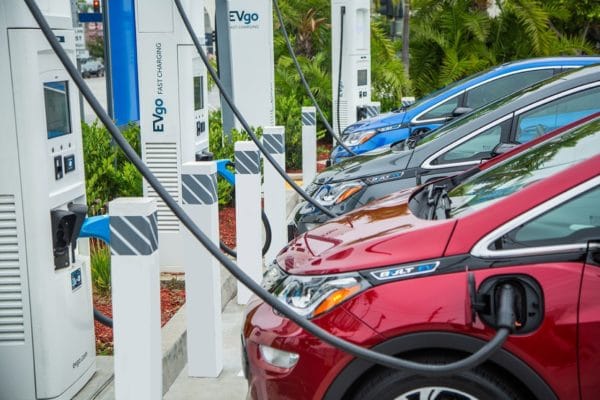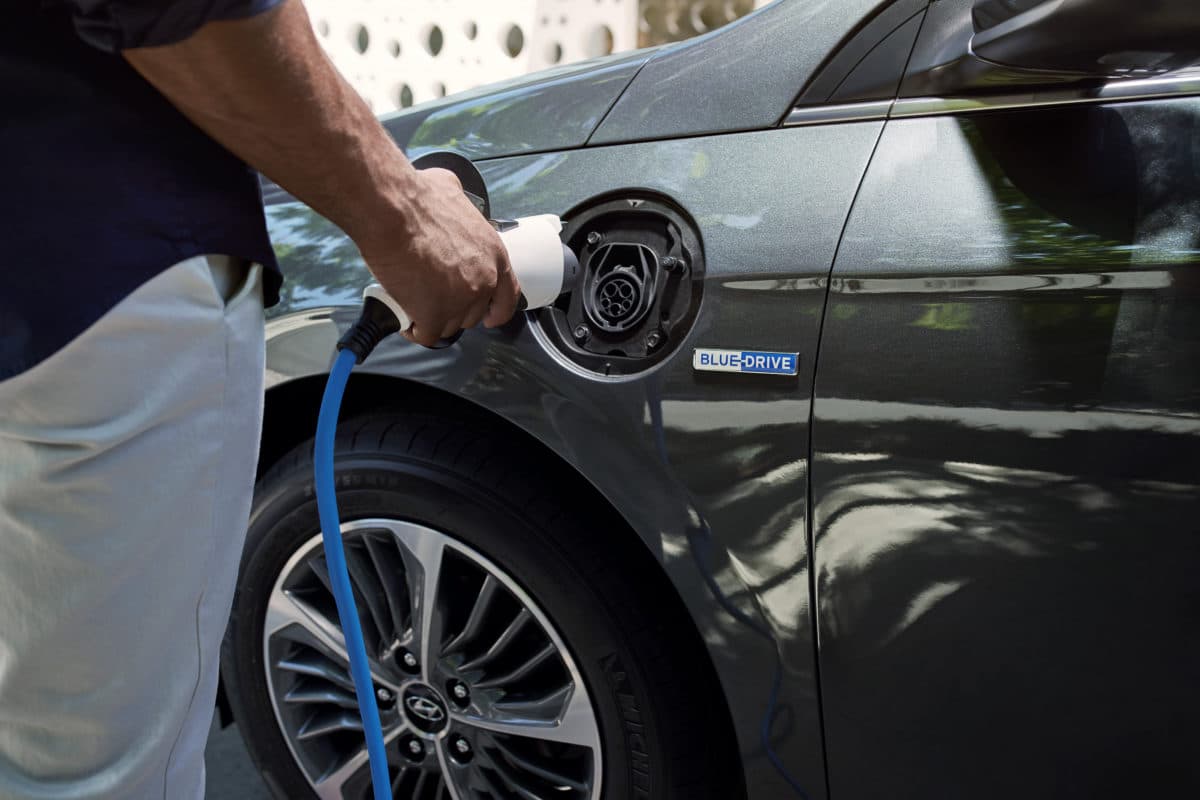With Victoria to become the first state in Australia to tax electric vehicle (EV) drivers after legislation passed through parliament earlier this week, the Motor Trades Association of Australia (MTAA) has declared the Federal Government needs to provide some certainty for Australia’s $39.35 billion automotive industry.
In its new 2021 Industry Report, the MTAA said Australia was nearing a “revolutionary turning point” in its transition to zero-emission vehicles but moves by various state and territory governments seem to be steering in the wrong direction.
In its first major review of the industry in four years, the MTAA said the Federal Government must provide leadership and certainty for businesses and the broader community in regards to EV taxes with a “patchwork of state-based levies on battery electric cars” serving to slow their uptake in Australia.
“There is considerable apprehension amongst consumers and businesses as to whether the Federal Government will impose its own tax regime on low emission vehicles on top of the state levies already being designed,” the report reads.
“If double dipping occurs,” referring to the prospect of both federal and state taxes being introduced, “this will create a major disincentive for the purchase of electric vehicles.”
Victoria has already confirmed it will introduce a tax for EV drivers after the legislation passed without amendment in the Upper House on Tuesday night.
From July 1, EV drivers will pay a levy for every kilometre travelled on public roads in the state. Drivers of electric and other zero-emission vehicles will pay 2.5 cent/km while drivers of plug-in hybrid-electric vehicles will pay 2.0 cent/km.

Image: Audi
The Victorian tax is expected to raise $30 million over four years and is forecast to cost the average EV owner between $260 and $300 annually.
Victorian Greens MP Sam Hibbins said the tax would make Victoria a “global laughing stock” and ensure the state continues to lag in the uptake of EVs.
“This is climate vandalism in the midst of a climate crisis,” he said.
Victorian Treasurer Tim Pallas has previously described the tax as “modest”, claiming it is about half the rate of what other vehicle owners pay through the fuel excise.
“Everybody who uses a road should pay their fair share to maintain them,” he said.
The take-up of electric vehicles in Australia has been slow compared to other developed nations.
Data released by the Electric Vehicle Council (EVC) shows Australia is way behind in its EV adoption as other markets around the world are hitting the accelerator hard.
There were 6,900 EVs sold in Australia in 2020, a 2.7% increase from the 6,718 sold in 2019. The 2020 EV sales figure accounts for just 0.7% of total new car sales.
By comparison, EVs in the EU increased their market share to 10.2% in 2020 while in the UK it climbed to 10.7%. In California, EV market share climbed to 8.1% while in Norway it rose from 56% in 2019 to 75% in 2020.
The MTAA said that by 2030 EVs are tipped to account for 26% of all new vehicle sales in Australia but the nation’s car fleet is not expected to be fully electrified until 2050.
The industry body however said the “ongoing technological advancements and economies of scale may bring about a quicker-than-expected price advantage for electric vehicles”.
“This may sway many consumers towards purchasing EVs very quickly,” the report reads.

Image: GM
The MTAA also said analysis on the uptake of EVs in China, Norway and the United States shows that investing in technology like electric charging stations “is much more effective than subsidising consumer purchases to promote EV sales”.
Victoria countered its new EV road tax by announcing last month it will provide 20,000 subsidies of up to $3,000 for new EV purchases under $69,000, as part of a $100-million plan to encourage EV use.
As part of the package, the state will also spend $19 million on new charging stations and $10 million to expand the government EV fleet by 400 cars over the next two years.
Opposition Leader Michael O’Brien said it made “no sense” to subsidise EVs while also imposing a “big new tax” on them.
“It’s like putting on the heater and the air conditioning at the same time,” he said.
South Australia was the first state to announce its intention to introduce a user charge on EVs, but Treasurer Rob Lucas has put the plans on hold until July 1, 2022.
NSW Treasurer Dominic Perrottet has foreshadowed a “holistic” tax plan for electric vehicles in next month’s state budget.
The New South Wales government, meanwhile, is still deciding the make-up of its EV policy with Transport Minister Andrew Constance earlier this month proposing the government incentivise EV purchases before introducing an equivalent road tax.
The Australian Capital Territory government has opted for a different direction, earlier this month announcing a fleet of incentives for EV owners as the territory looks to cut its carbon footprint.
Residents and businesses in the ACT will receive two years of free car registration when they buy an EV. The deal includes to new or used EVs bought between 24 May and 30 June 2024.
ACT homeowners can also apply for a $15,000 loan to go toward sustainable energy products including EVs as the territory aims to reach net zero greenhouse gas emissions by 2045.
EVs sold in the ACT are already exempt from stamp duty with the territory looking to move its fleet of government cars to electric by the end of the year.
ACT Minister for Energy and Emissions Reduction, Shane Rattenbury, said the territory was “leading Australia” on EV incentives.
“We want to enable and support community action to reduce emissions, and making zero emissions vehicles more available and affordable is one of the ways we can do that,” he said.
This content is protected by copyright and may not be reused. If you want to cooperate with us and would like to reuse some of our content, please contact: editors@pv-magazine.com.









If I commute every day in an EV from Kilcunda to Melbourne CBD and equivalent km’s on weekend I will be paying almost $2,400 in road fees (2.5c/km) in the first year from the new law just passed in Victoria, and amount increases every year after that as the tax goes up with the indexing included in the tax. If I have the car for 20 years, and exclude all electric charges to actually power the vehicle, this amount would approach $75k in road tax. How is that for an incentive to stick with a cancer causing polluting ICE vehicle? Of course, the Federal Government taxes petrol at 41c/L, which works out to about 6.5c/km, so I am getting off easy. All the taxes and fees collected from motor vehicle users only cover approximately 2/3 of the actual costs spend on roads (and excludes addition society costs, such as health costs/deaths from pollution, livability degradation from noise and congestion, land, which could be used as parks, used for roads, parking lots, junk yards, etc… (heavy trucks pay the fuel excise at the same rate as cars, but cause considerably more damage to the roads from their up to 68,500kg weight, carcinogenic diesel fumes and dispropotionate road deaths and excess maintenance required on roads. The rest of the road costs are covered by people who don’t own a vehicle with general taxes from everyone at the state level. If the road users paid even just all the direct road expenditures, then the excise tax per km travelled should be $1.25/L, not $0.41/L, so I guess we are all getting off easy.
This new EV tax is paid to the State of Victoria, as opposed to the excise taxes and GST on petrol/diesel going to the Federal Government, which then distributes about 2/3 back to states, not in the same proportion as the state contributed.
The true cost of accommodating vehicles, in fairness, should be paid by those using them, in proportion to the costs expended to service them (heavy trucks paying more per vehicle than light vehicles in taxes/fees to cover additional capital costs and disproportionate damage to roads) and cover all societal costs, such as pollution, death/injury costs, medical (cancer, asthma), land taxes for roads, parking, disposal and fuel production).